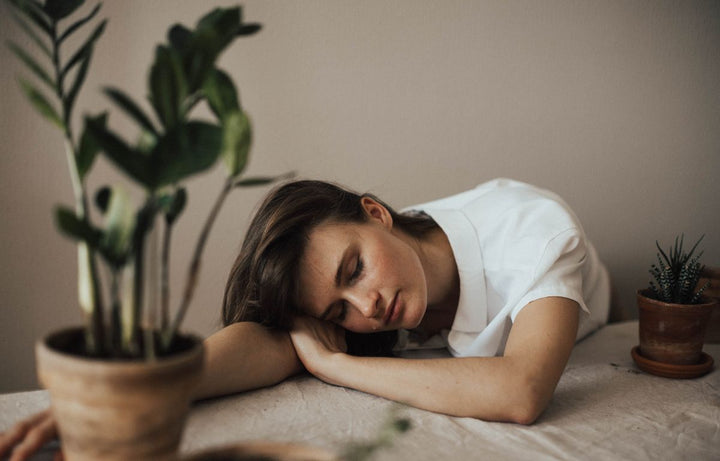
Help, I am obsessed with acquiring new houseplants!
Help, I am obsessed with acquiring new houseplants!
Becoming a houseplant enthusiast often starts innocently. Perhaps you received a succulent as a gift, or you were captivated by a lush monstera in a friend's living room. Before you know it, your home is brimming with greenery, and you're officially a houseplant addict. But what is it about houseplants that capture our hearts and homes so completely, why do we have the compulsion to expand our collection, and when does it become too much?

Why We Fall for Houseplants
- Natural Beauty: Houseplants bring a slice of nature indoors, transforming spaces into vibrant, living environments. Their variety in shapes, sizes, and colours can match any decor style.
- Mental Health Boost: Caring for plants has been shown to reduce stress, anxiety, and depression. The act of nurturing a living thing can be incredibly therapeutic and rewarding.
- Air Purification: Many houseplants improve air quality by filtering toxins, adding a literal breath of fresh air to our homes.
- Sense of Accomplishment: Watching a plant thrive under your care provides a sense of achievement and pride.
- Connection to Nature: In urban settings, houseplants offer a connection to the natural world, grounding us amidst the concrete jungle.
The Benefits of Houseplants
- Improved Air Quality: Plants like the spider plant and peace lily are known for their air-purifying qualities, removing toxins such as formaldehyde and benzene from the air.
- Enhanced Creativity and Productivity: Studies suggest that having plants in your workspace can boost creativity, productivity, and overall well-being.
- Reduced Stress: Interaction with plants can lower blood pressure and increase feelings of calmness and tranquillity.
- Humidifying the Air: Plants naturally release moisture into the air, which can help combat dry air conditions in your home, especially during winter.
The Dark Side of Plant Addiction
However, like any passion, houseplant collecting can have a downside. When the hobby turns into an obsession, it can lead to negative consequences.
- Space Issues: With limited space, a burgeoning collection can quickly lead to a cluttered home, making it difficult to move around or enjoy your living space.
- Neglected Plants: In the rush to acquire more, the quality of care for each plant can suffer. Neglected plants are often exposed to pest and bacterial and fungal diseases such as mold. Chronic over or underwatering, and under exposure to natural light reducing growth, or wilted and yellowing foliage.
- Financial Strain: Rare and exotic plants can be expensive. Constantly buying new plants can strain your budget, especially when factoring in pots, soil, and plant care products.
- Time and Effort: Each plant requires care, watering, repotting, pruning, and pest control. A large collection can become overwhelming, turning an activity that should be mindful and enjoyable into a time-consuming chore.
- Social Pressure: With countless Plantstagrams and social media accounts boasting lush houseplant jungles, it can be easy to feel self-conscious about the size of your plant collection, and how fast or slow they are growing. Not to mention how everyone else seems to be able grow a Fiddle Leaf Fig but you!

Combating Plant Addiction: Quality Over Quantity
To maintain a healthy balance, consider these mindful approaches to plant collecting:
- Set Limits: Determine a maximum number of plants that you can reasonably care for and stick to it. Focus on quality care rather than quantity.
- Prioritise: Choose plants that truly bring you joy and fit well within your space and lifestyle. Let go of any that don't thrive or add to your stress. You will find many loving homes that will care and love your old plants just as much as you!
- Budget Wisely: Set a budget for plant purchases and stick to it. This can help curb impulse buys and ensure you're financially responsible. Make a Wish List to pass along to your friends and family for birthdays and special occasions. You will never be that hard-to-buy for person again.
- Educate Yourself: Learn about each plant's specific needs before purchasing. This ensures you can provide the proper care and reduces the likelihood of neglect. Set goals for each plant like a growth tracker. This is a great way of finding the right care and maintenance combination that suits your specific plant.
- Declutter Regularly: Periodically assess your collection and rehome plants that no longer serve you. This can keep your collection manageable and healthy.
- Mindful Purchasing: Before buying a new plant, take a moment to reflect on why you want it. Is it an impulsive desire or a well-thought-out addition to your collection? Do you need three Philodendron billietiae plants?
- Propagate: Rather than buying new plants, try propagating the ones you already have. There is some cost to purchasing hormone solution, seedling potting mix and containers but each item will last longer and spread over many more plants. Alternatively, you easily water propagate with an old jam jar, fresh water, and a good daily dose of natural light.
Becoming a houseplant addict can be a fulfilling and enriching journey, as long as it's approached with mindfulness and balance. Embrace the joy and benefits that plants bring, but remember that moderation is key. With thoughtful care and a mindful approach, you can create a thriving, harmonious green sanctuary without overwhelming yourself or your space. Happy planting!
Interested in learning more? Check out this blog post on trailing plants.
